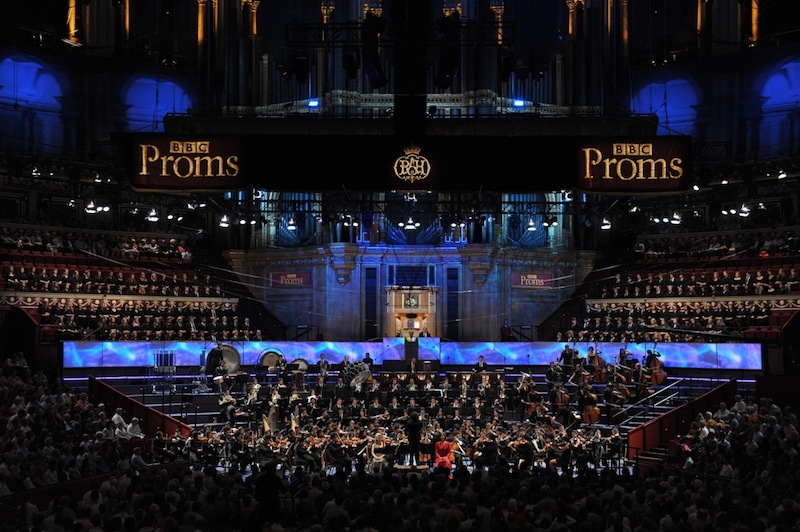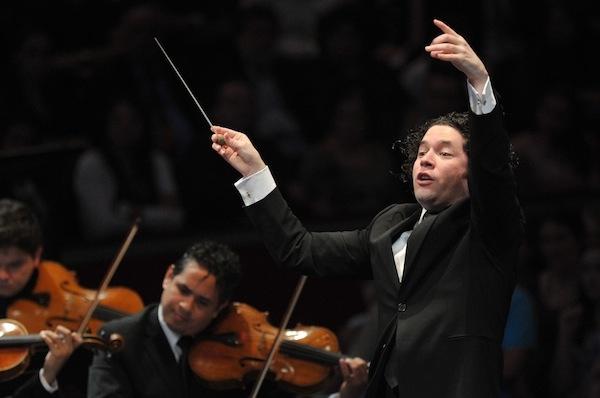Marley & Me: that’s the film about living with a neurotic dog, out now on DVD. And Mahler & Me? It could be the Gustavo Dudamel story. Conducting Mahler was what first brought everyone’s favourite Venezuelan to world attention, when he won the 2004 Mahler Competition in Bamberg. Given the turbo-charged excitement always stirred by his Simon Bolívar players – no Youth Orchestra now, mark you, but a Symphony Orchestra, grown-up, professional – this Prom visit would have been sold out long ago even if they were playing Glazunov. But it’s Mahler, that neurotic dog Mahler!
It’s also the Resurrection Symphony – the Mahler symphony above all others that the Bolívar players and every beneficiary of Venezuela’s music education system, El Sistema, could possibly take personally. Mahler’s symphony grandly escorts us from life’s batterings, through death to eternal life. El Sistema has done something similar, if more domestic, by taking these players and many others from living on crime and drug-spattered streets to living with dignity and hope. And frequent flyer miles: in this world it’s all or nothing.
On the Bolivars’ previous Prom visit in 2007 their electricity almost burned down the Albert Hall. Here, too, the energy was immense, even without the mambo. As soon as the tremulous strings entered, tension crackled, promptly enlarged by the growling parade of 14 double basses, rising up the platform’s steps – the kind of showy positioning usually seen only in Hollywood films. Dudamel and his players quickly showed that even when transported to Mahler’s Vienna they could still sound brashly Latin-American, and colour the music a dark blood-red. Fortissimo chords sat like chunks of raw meat; accenting was heavy and sudden. Lurch, lurch: that’s the way the argument went in the first movement and thereafter, with numerous unplanned extra lurches from the trumpeters’ fluffs. For whatever reason – heat, bad luck, Old Man Fate – they didn’t have a good night.
Nor, I felt, did Dudamel himself in the matter of speeds. The second movement’s gravely polite dance was sweetly played, but it came so very slowly. In some of its pauses I could have boiled an egg, a state of affairs that tottered back in the epic last movement’s fanfares and the tortoise crawl of the gorgeously mellifluous National Youth Choir of Great Britain. It’s true enough that Mahler marks the second movement"Nicht eilen" – no rushing. True too that the transfiguring last movement needs grandiosity and space to breathe, especially in the merry-go-round of the Albert Hall acoustic. But Dudamel’s slow speeds came perilously close at times to stopping all momentum and shattering a symphony already heterogeneous enough into a pile of fragments. More thinking about the symphony’s long-term structural needs might be in order – if Dudamel of course has the time in his whirlwind career.

Still, let’s not be too crabby. Some of the fragments were very special. I loved the vibrant singing strings streaking through the last movement’s early hurly-burly. The offstage brass made a tremendous contribution, better indeed than the brass on the stage. And the final stretch, with the tortoise crawl abandoned and the choir at maximum power, definitely uplifted your soul and made the Albert Hall shake.
As for the soloists, mezzo Anna Larsson’s despatch of the "Urlicht" movement was very easy to love: tenderly moving, humane, the tone pure and limpid. Her red dress wasn’t bad, either. Alongside, fellow Swede Miah Persson tootled prettily. More than most, this was a performance when we needed the emollient embrace of the human voice, to soften some of Dudamel’s curious bullying ways and give the music-making more glue, more heart.
The capacity crowd, I should say, cheered and cheered and didn’t want the Venezuelans to leave. Who knows, maybe they’re still there, dancing the mambo; I had to retreat to write this review. This extraordinary curate’s egg of a Prom is being televised this Saturday night on BBC Two, with a repeat on 28 August on BBC Four.














Add comment